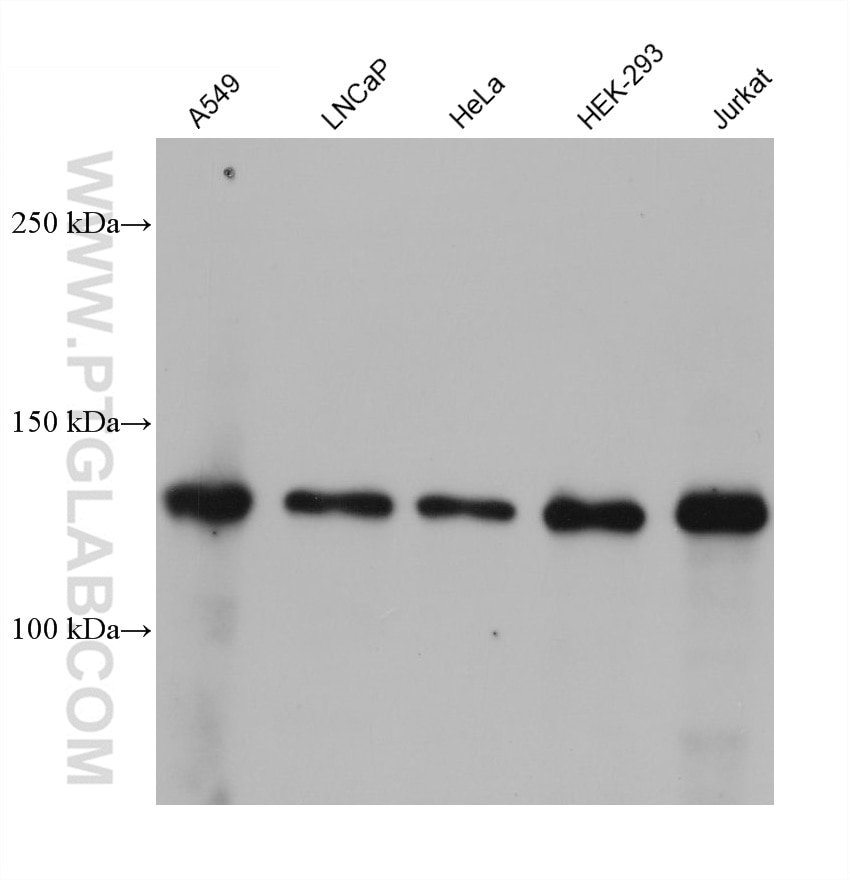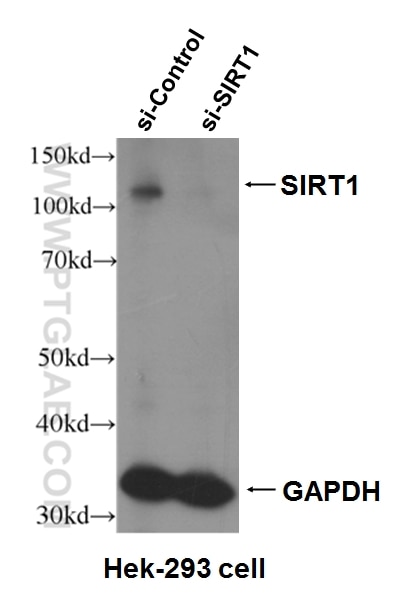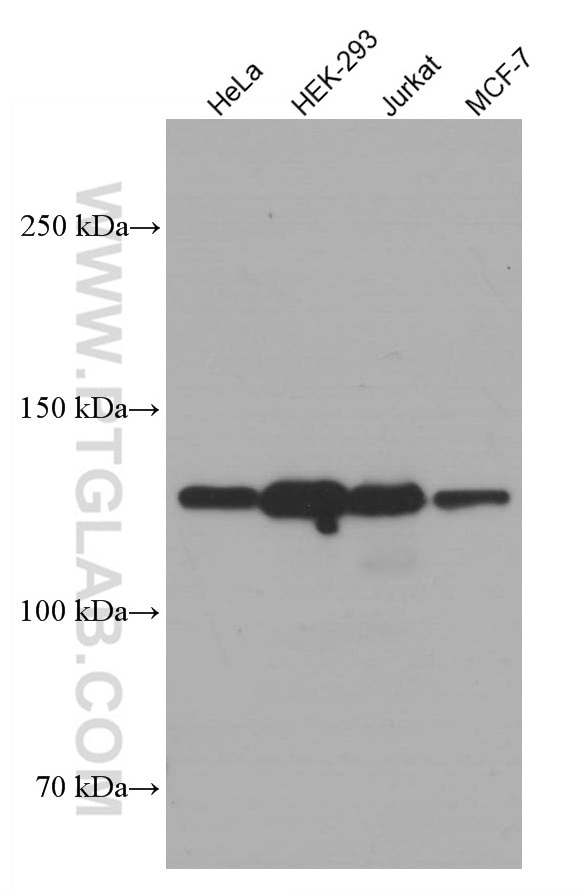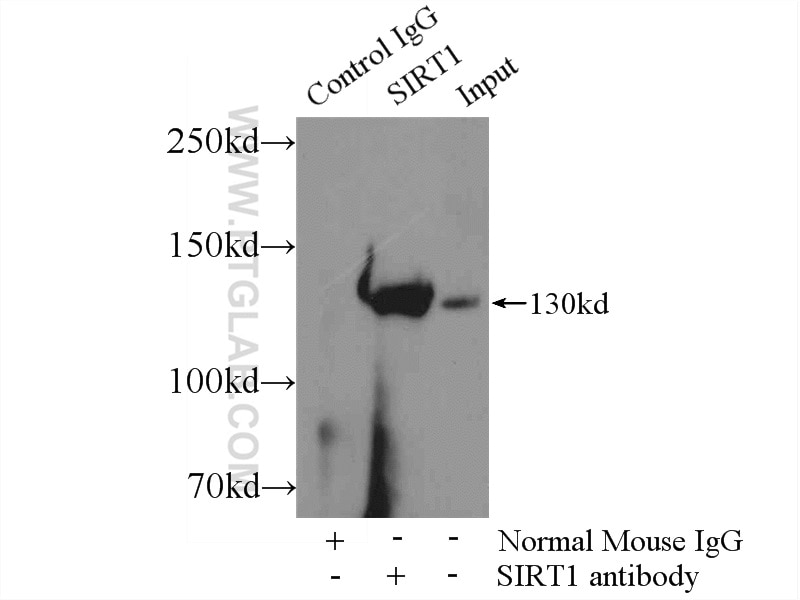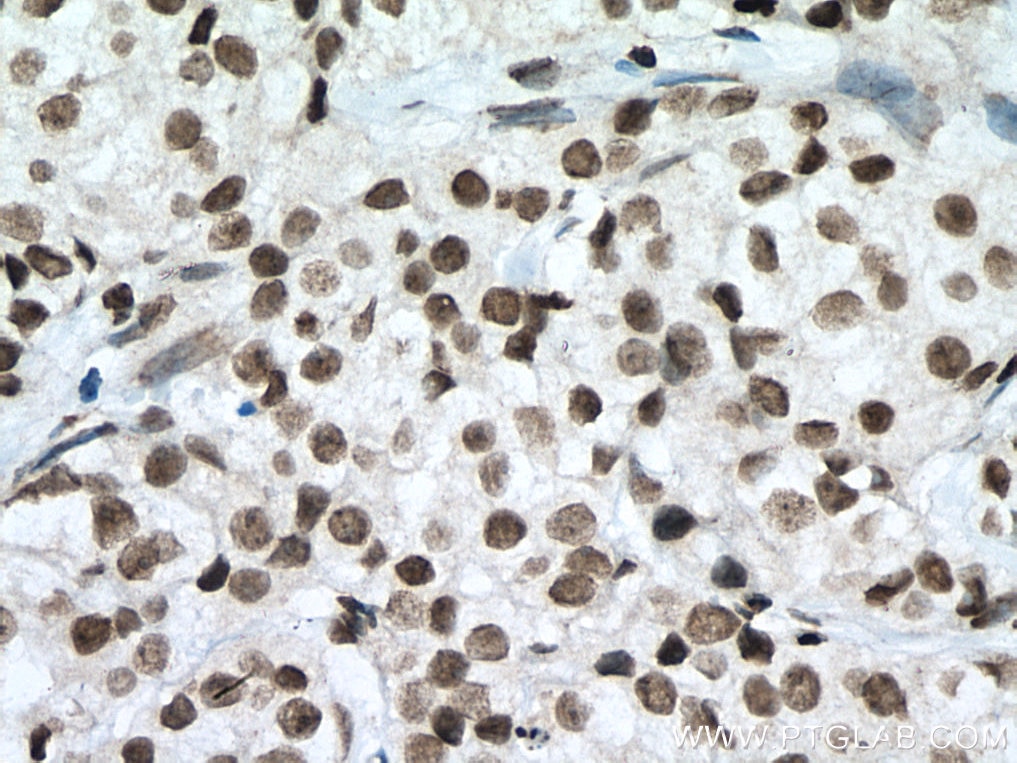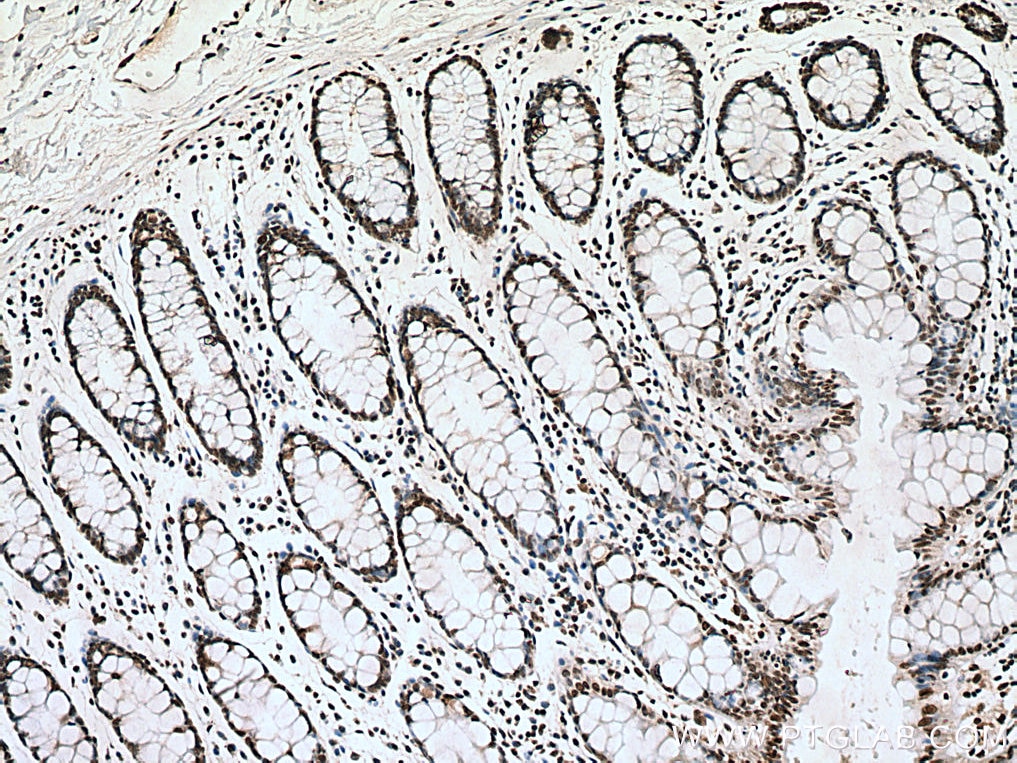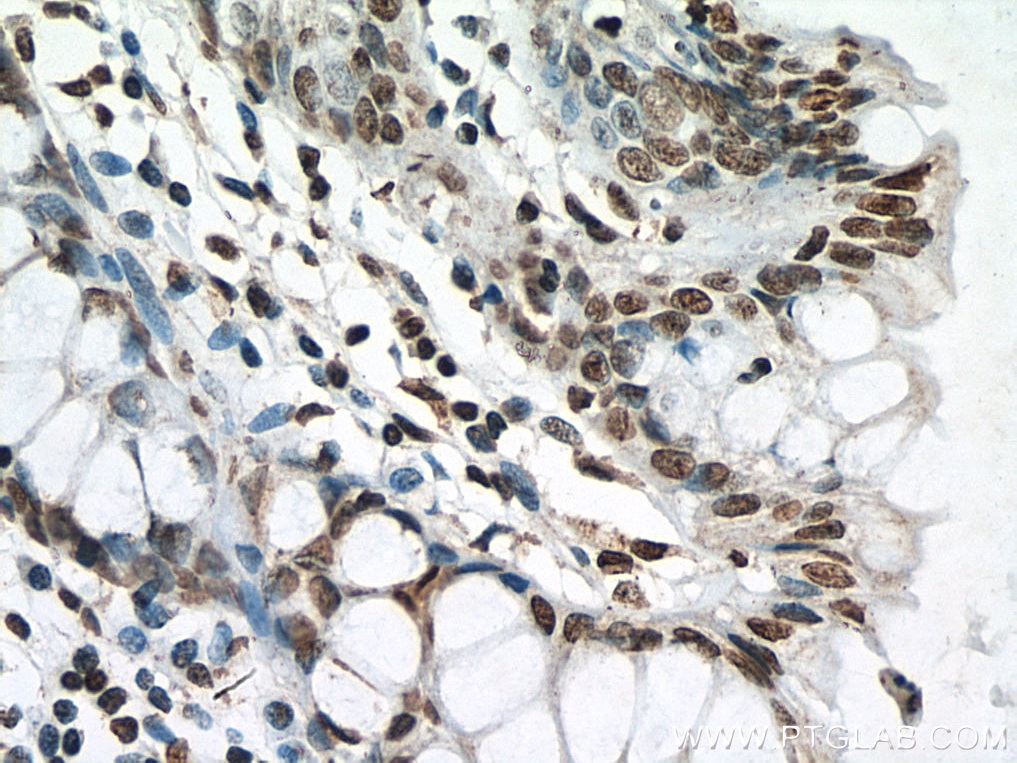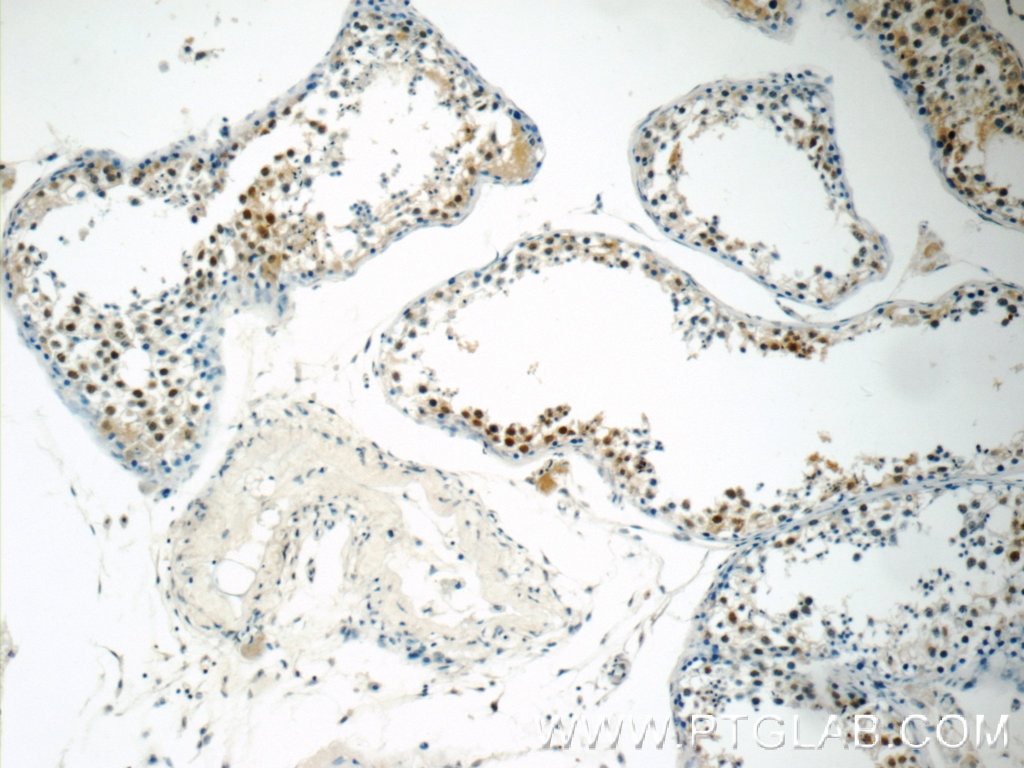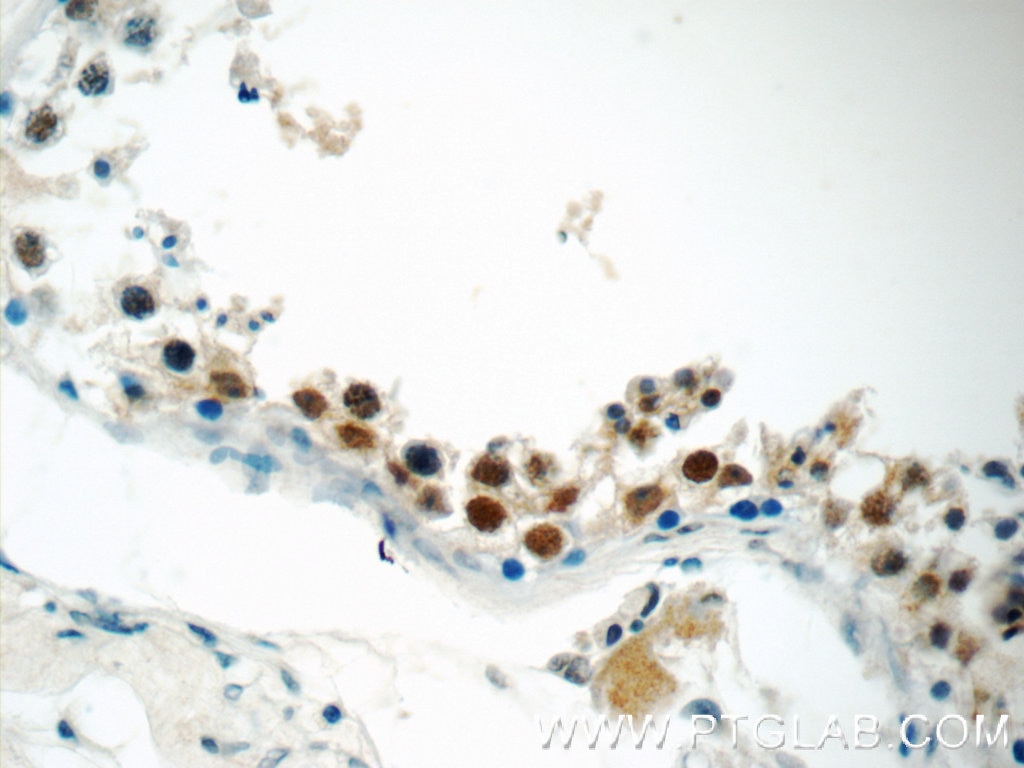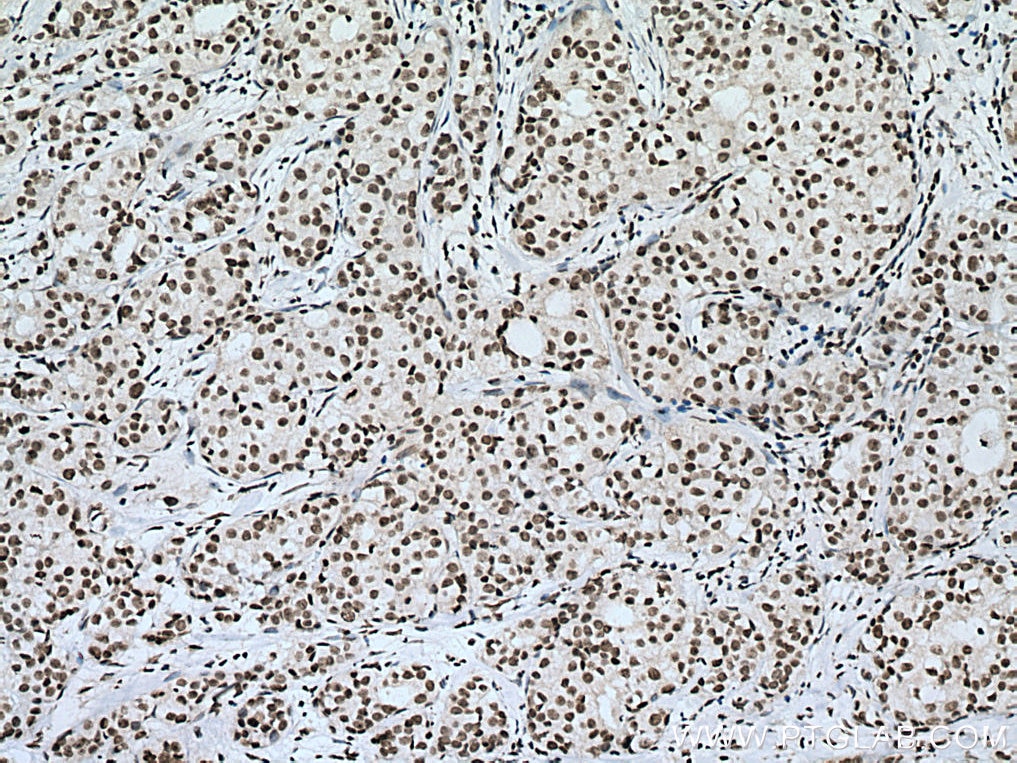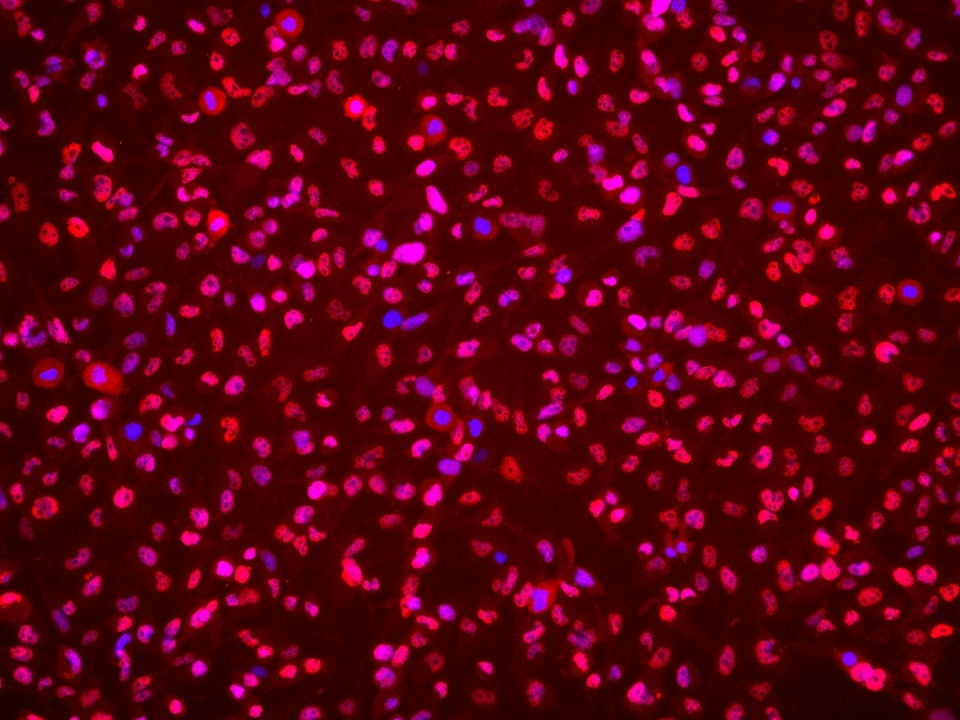- Phare
- Validé par KD/KO
Anticorps Monoclonal anti-SIRT1
SIRT1 Monoclonal Antibody for WB, IHC, IF/ICC, IP, Indirect ELISA
Hôte / Isotype
Mouse / IgG2b
Réactivité testée
Humain
Applications
WB, IHC, IF/ICC, IP, Indirect ELISA
Conjugaison
Non conjugué
CloneNo.
7F6G6
N° de cat : 60303-1-PBS
Synonymes
Galerie de données de validation
Informations sur le produit
60303-1-PBS cible SIRT1 dans les applications de WB, IHC, IF/ICC, IP, Indirect ELISA et montre une réactivité avec des échantillons Humain
| Réactivité | Humain |
| Hôte / Isotype | Mouse / IgG2b |
| Clonalité | Monoclonal |
| Type | Anticorps |
| Immunogène | SIRT1 Protéine recombinante Ag17677 |
| Nom complet | sirtuin (silent mating type information regulation 2 homolog) 1 (S. cerevisiae) |
| Masse moléculaire calculée | 747 aa, 82 kDa |
| Poids moléculaire observé | 110-130 kDa |
| Numéro d’acquisition GenBank | BC012499 |
| Symbole du gène | SIRT1 |
| Identification du gène (NCBI) | 23411 |
| Conjugaison | Non conjugué |
| Forme | Liquide |
| Méthode de purification | Purification par protéine A |
| Tampon de stockage | PBS only |
| Conditions de stockage | Store at -80°C. 20ul contiennent 0,1% de BSA. |
Informations générales
SIRT1, also named as SIR2L1, contains a deacetylase sirtuin-type domain and belongs to the sirtuin family. The post-translation modified SIRT1 is a 110-130 kDa protein, which contains one deacetylase sirtuin-type domain. The 75-80 kDa SIRT1 fragment was detected to lack the carboxy-terminus (PMID:21305533). SIRT1 exists a 57-61 kDa isoform. SIRT1 may be found in nucleolus, nuclear euchromatin, heterochromatin and inner membrane. It can shuttles between nucleus and cytoplasm. SIRT1 regulates processes such as apoptosis and muscle differentiation by deacetylating key proteins. SIRT1 in particular initiates several signaling events relevant to cardioprotection, including: activation of endothelial nitric oxide synthase, INS receptor signaling, and autophagy. In addition SIRT1 activation elicits resistance to oxidative stress via regulation of transcription factors and co-activators such as FOXO, Hif-2a, and NF-kB. SIRT1 regulates the p53-dependent DNA damage response pathway by binding to and deacetylating p53, specifically at Lysine 382.
